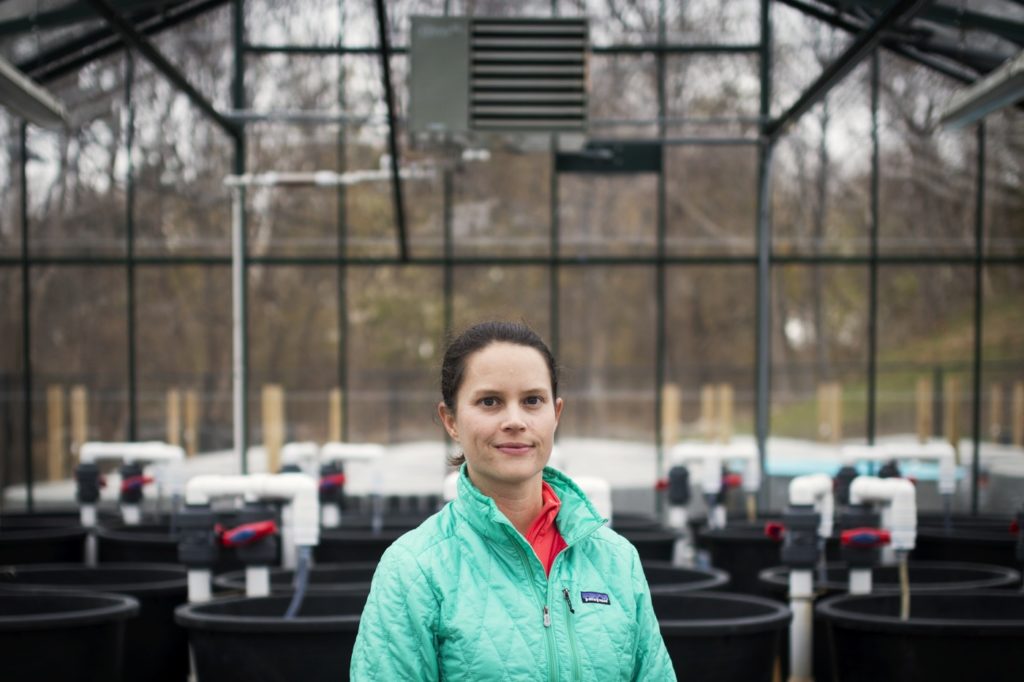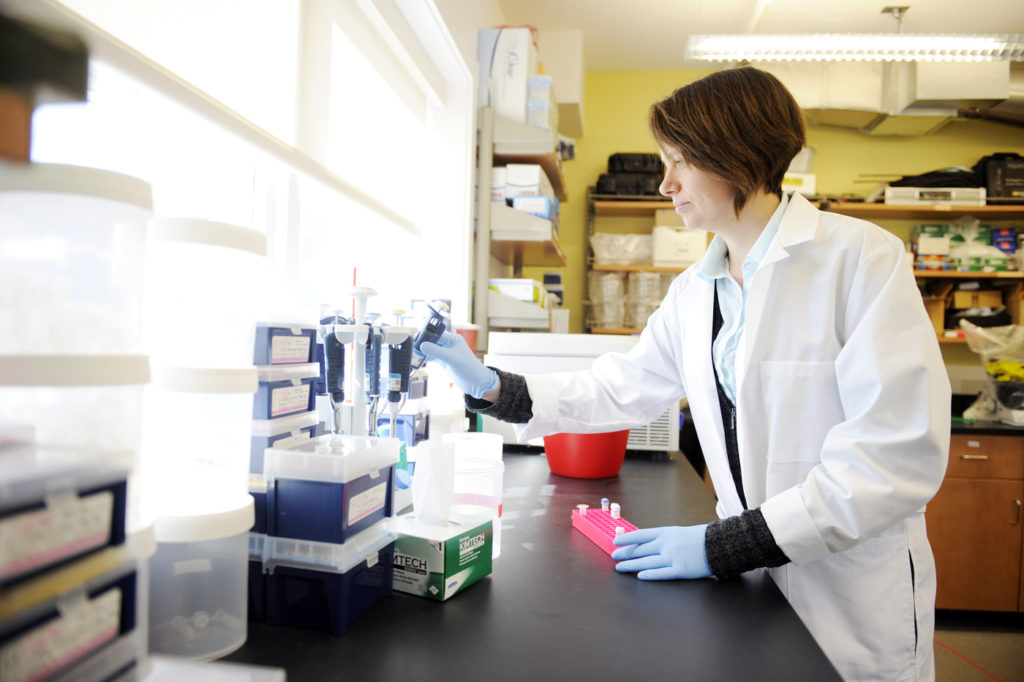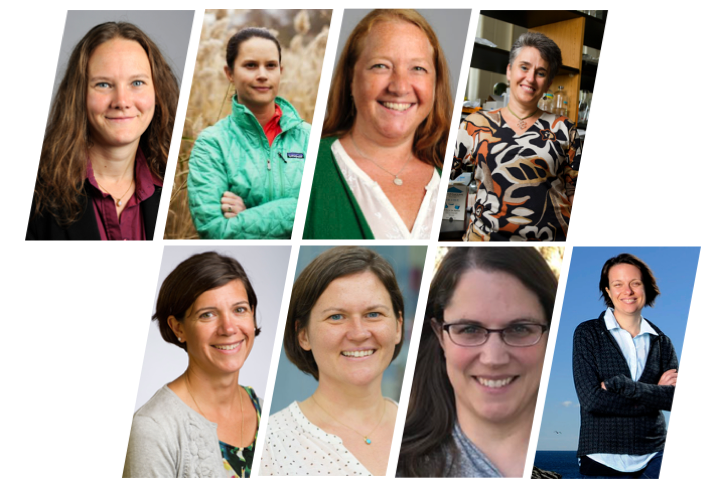Building Knowledge and Pathways to Positive Change
Women make up less than a third of the global research population, but scientists at Northeastern University’s Department of Marine and Environmental Sciences are driving the change in that statistic through their innovative, successful research and their contributions to a thriving STEM pipeline for young women and future researchers. This Women’s History Month, we’re highlighting faculty who are advancing scientific knowledge and removing barriers for the next generation of women in STEM.
What are the causes and consequences of changes in marine biodiversity, and how can these factors be applied to habitat restoration?
Featuring Dr. Randall Hughes

“I am personally fascinated and intrigued by the minutiae of science – what happens when we change one tiny part of a system, such as the identity of a blade of grass, and why? I find that sharing that information with students and figuring out ways to apply it to real-world problems are the most rewarding aspects of what I do.” Photo by Adam Glanzman/Northeastern University
Dr. A. Randall Hughes uses lab and field experiments, molecular techniques, and data synthesis to address these questions by examining the interactions among the numbers and identity of species, the genetic individuals that make up those species, and the ecosystem services that they provide.
Coastal ecosystems are shaped by the interplay between ecological and evolutionary processes, and Dr. Hughes is helping understand these interactions and apply that information to management and conservation.
For example, long-standing work in the Hughes Lab has demonstrated that seagrass (Zostera marina) genetic diversity leads to enhanced response of the seagrass ecosystem to a wide range of disturbances. Recent experiments indicate that seagrass genetic diversity also confers resistance to wasting disease, which nearly eliminated seagrass along the eastern coast of the US in the early 1900s.
Genetic diversity is also important for the survival and growth of Eastern oysters (Crassostrea virginica), as highlighted in studies conducted with the Kimbro and Grabowski Labs at Northeastern. The Hughes Lab is currently working in partnership with state resource management agencies in MA and RI to find feasible ways to apply these findings to enhance restoration success of both seagrasses and oysters. In addition, Dr. Hughes is collaborating with the Scyphers and Grabowski Labs at Northeastern to break down the documented gap between our scientific understanding of the importance of biodiversity and the application of this information to habitat restoration practice.
Dr. Hughes serves as the Chair of the department’s Diversity and Inclusion Committee, which works within MES/MSC to welcome, celebrate, and foster equity and diversity by providing diversity & inclusion resources and programming, facilitating mentoring and exchange within the department, and building the sense of community across the research disciplines and career stages represented on our campus.
How has climate shaped marine biodiversity in the past, and how will a rapidly changing climate affect biodiversity in the future?
Featuring Dr. Katie Lotterhos

When asked what motivates her research and collaborations, Dr. Lotterhos simply answered “I love data.”
Dr. Katie Lotterhos and her research team seek to address these complexities and to improve predictability and analysis of complex marine systems by using theory and experiment to inform each other and using novel statistical methodology to integrate data across biological, spatial, and temporal scales.
Research in her lab is driven by a desire to address the most central problems plaguing environmental systems. Many of these problems arise from the threat of global environmental change on marine and terrestrial species alike. As marine species are threatened by ocean acidification, warmer temperatures and lower oxygen levels, the Lotterhos Lab is investigating how intraspecific biodiversity – diversity between individuals within a species – can play a role in their responses to environmental change.
She is currently working with researchers from 12 institutions to analyze the genetic sequences of oysters, looking for adaptations within the species, and her recent analyses of genome scans on cod and other species provided key insights to help advance statistics analysis of DNA across many disciplines.
Dr. Lotterhos is a mentor for women in science at every career stage; in addition to PhD and Post-Doctoral candidates, her lab frequently hosts undergraduate researchers and, most recently, a high school intern from Essex Tech, Ellie Clark.
For the past two years, Dr. Lotterhos and her team have orchestrated impactful STEM workshops for high school girls supported by funding from the National Science Foundation. These Evolution in Changing Seas workshops have introduced these young women to the evolutionary research ongoing at the Marine Science Center, and offered hands-on training with pipetting, DNA extraction, and coding.

